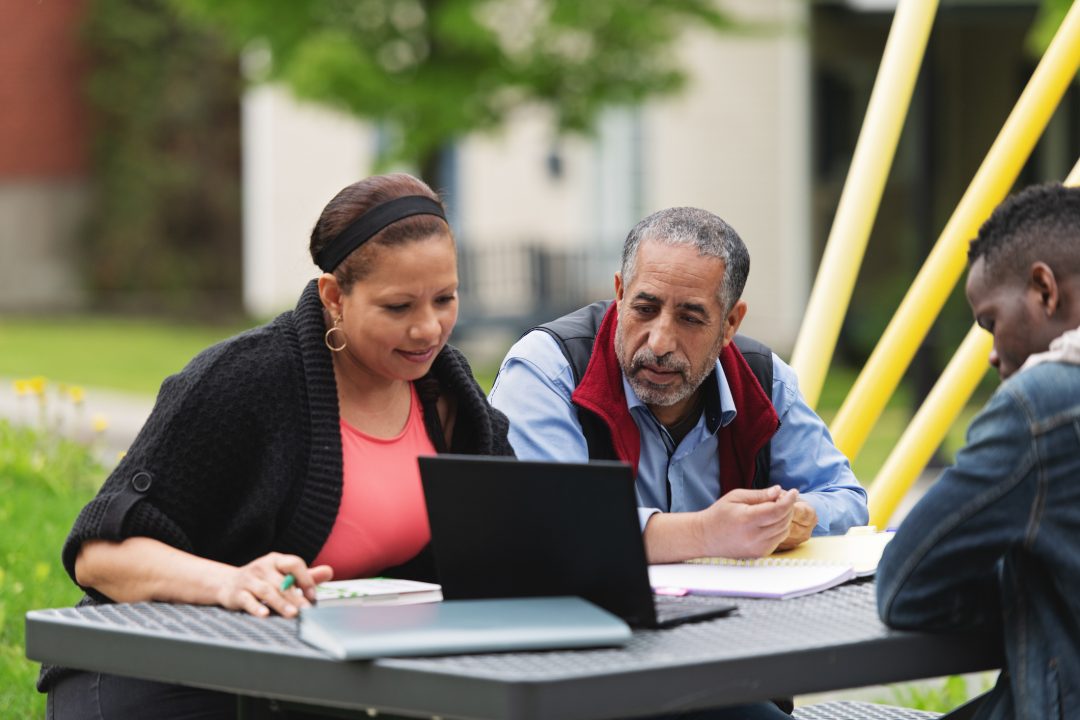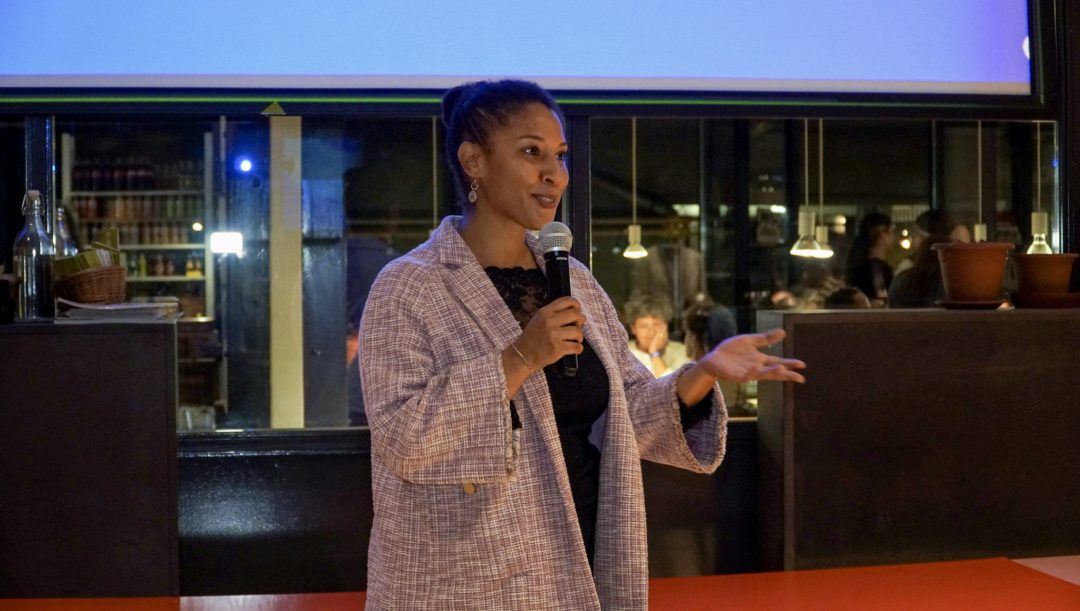As Ali Ilbeygi graduated from The Leap a few months ago, we asked him a few questions on his experience in the program and about his venture, ICD Impact. Convinced that communities around the world can benefit from the work of for-profit companies and social entrepreneurs, Ali Ilbeygi wants those ventures to be considered for what they are: real businesses.
What is ICD Impact about?
We’re creating a company of service aimed at social impact projects. The goal is to create metrics of impact for each process stage with a package deal that includes stakeholder diagnostics, project/program design, project/program management and monitoring through to execution, and finally the evaluation. We’re targeting specifically private sector and their CSR budget, and public sector or governmental agencies to support a comprehensive program support focused on social impact.
Where did the idea for this project come from? What’s your goal?

The idea came from my partner who was involved in UN organisations for the past two decades. We saw a good combination with my decades of work in private sector and to combine our knowledge and contacts. Our goal is not to merely be consultants for impact project management, but to create metrics to be able to measure the efficacy of the processes done in the project management while dealing with social impact projects and programs. There already are some general metrics, but nothing standardized about how to measure impact on projects as well as social return on investment.
You started out your journey as an entrepreneur recently: what are the main challenges you have faced up until now? What’s your best memory so far?
The challenges faced from my side is selling the “noble” (but also profitable) idea of project creation with its main focus on social improvement. This is often mistaken by multinational companies as charity work, or non-profit. Our products are services, hence intangible, yet we have our own metrics where measurements are tangible. So I have to find different strategies to penetrate different market, while making an intangible product somehow tangible. It’s been hard, but I do believe that when reputation is built, getting new clients should become much easier.
“Challenges in different forms are there and will always be a part of learning and growth.”
To your second question: I think that today’s technology and the shift of awareness in cooperation have created a fertile ground for new ideas that can get support like never before. Information and knowledge can be obtained with very little investment, which was never was case in the past decades. Nonetheless, challenges in different forms are there and will always be a part of learning and growth.
You took part in the incubation program with Bridge for Billions: why? What were your main needs and expectations before starting the program?
My partner told me about The Leap but I wanted to meet with Pablo Santaeufemia (the CEO and co-founder) because I think it’s vital to know the mindset and personality of those who are behind any corporation. And after meeting him, I was convinced: I’ve always been someone who wants to evolve with the information and technology of his era, so I decided to take The Leap.
Read more: Your Business idea is worth nothing – and that’s ok
I had no expectations but I was curious to see if I would learn more than I already knew – I had already learned a lot through my professional experience. And I wasn’t disappointed: I’m glad I did it! The best was that so many details were given on each aspects of the business, turning simple ideas or “pie in the sky” to manifest as a relatively solid form with business plans and numbers.

What would you say you gained from the experience?
There are people who care for others and willing to support them with their ideas.
In your experience, how important is it to have a good mentor on your side at the outset of your entrepreneurial adventure?
In my case, it did not weigh that much due to my own experience. However, it was still great to have his ideas on certain aspects that were much. This having been said, for many who are just starting, finding a mentor is crucial and can make or break a business – a mentor, in my opinion, is not only knowledgeable in certain business areas, but should have the appropriate soft skills to keep the motivation up, as to have the energy to tackle challenging phases.
What has changed in your life since the launch of your project?
The main change that I have noticed can’t be described as “change” per se, but the volume of new information or upgrades from the old-school methodologies and views to how businesses and tools for such endeavours have changed. Today, it’s so much easier to connect to information, to communities, to like-minded individuals, which is unprecedented.
This is a good thing, and the methodology of Bridge for Billions encompasses the important steps, calculations and information which are imperative for creation of a sound business plan and path from entrepreneurial intangible idea. Therefore the “change” is in viewing of world around after having such detailed inputs, and using them accordingly.
What were your biggest fears before starting?
I had no real fears, since I had already started several businesses, and had changed life paths, some willingly, and some that I had little choice of say. This could be also due to my age and life experience. Having been through a few scary experiences myself, I began to give them scales and levels, furthermore, how true and potent the fear can be is all up to my internal evaluation of it.
“The main point is not to be stuck on fearful expectations, but focusing on what I can do with my commitment, efforts, and way of thinking.”
The main point is not to be stuck on fearful expectations, but focusing on what I can do with my commitment, efforts, and way of thinking. So when things go ‘south’ how to react and deal with them best – where each case can be different. In my opinion, the best way to deal with fear is first to see if it’s real, or if it’s just an habitual thought or a residue from the past. If it’s real, it helps to see fear as a wake-up call, where particular thought and action needs to be put into place to decipher the fear, and not become paralysed by it – but finding appropriate solutions, if they are available.
Furthermore, the main point that many seem to underestimate, or not add to the variable of solution fining, is the inner communication and therefore the behaviour while being in an uncomfortable stage (that can cause fear). Much can be seen differently when you become consciously aware, and finding alternative perspectives can ease the fear, for solutions to be found.

Which type of entrepreneur do you see yourself as?
Thinking a bit differently, or out of the box, not following the “norm” or what is accepted by the masses. It can be very difficult for entrepreneurs, despite having great ideas, views, products and methodologies, to get through to the mainstream due to many reasons, being culture, preference, leisure and fear of change (despite the notion of “change” being a constant).
I always had my eyes and ears open to new and sometimes controversial ideas and perspectives, being critical but not skeptical. The goal is to always be looking and testing the new idea as well as researching it to answer the critical part of my thoughts – therefore you need to have the needed plausible reasoning to defend the new idea and perspective.
What were the aha-moments when working on ICD Impact?
My “aha moment” was when I noticed that the world is becoming more “human’ through the new ways people and communities support one another, as well as business models and investments that are less oriented for the gains of a few but for the social impact. The greed for money and self profit seems to be getting less, and instead more assistance is offered.
Read more: 5 must-read books for social entrepreneurs
For many initially, this seems to be a charitable or philanthropy work, but it’s not. It’s a sound business venture that communities will benefit from. Hence the black and white view of merely profit or non-profit orientation has gotten more colors. Social enterprises for example, which are for-profit but have much to do with serving societies, is gaining momentum, which is a good thing, and about time.
What are the 3 main things all entrepreneurs should have in mind when launching a project?
Have an idea and a vision, then try to break it down into steps and practicality. If it’s still interesting, go further and get all the information on the idea and its peripheries. Then put the numbers together – still looking good? Move further and put a kick-off strategy and get all the help you can that is available.



